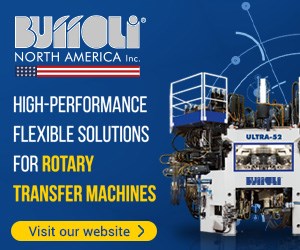When the Valley Shook
Today, just like any other day since the industrial revolution, our society is ripe for manufacturing entrepreneurs to lead.
I grew up on a street of 20 homes—ten on one side and ten on the other—in Southern California’s San Fernando Valley.
Characteristic of baby boomer neighborhoods, my street was not a cul-de-sac, but a dead end, and at the end of my block was a corn field. In those days, there was still plenty of agriculture happening in the valley and, in fact, my housing tract was a former walnut orchard.
All the fathers in my neighborhood were veteran WWII GI’s who were now aerospace engineers, manufacturers’ reps and physicians, factory workers, auto body repairmen and a Piggly Wiggly produce manager; the mothers, with few exceptions, were of the stay-at-home variety.
Aerospace was big in the valley in those days, with Rocketdyne, Lockheed, Hughes, Litton, Northrup and others—and there were more still over the hill by LAX. Where I lived, you knew when Rocketdyne tested a rocket engine because the entire valley shook.
In the summer of 1960, most of my neighborhood was out in the valley night air—mothers, fathers, kids of all ages—to watch the result of the launch of Echo1. All of us in the street gazing skyward, searching: “There it is!” “No, that’s a star.” “How about that one?” “No, that’s a plane.” “That’s IT! Looks like a star, but it’s moving!” Yes, we found Echo1 that night and watched for many a night thereafter.
These were exciting, bountiful times in the United States. Enjoying the benefits afforded us by the Greatest Generation—as well as by the growth of space exploration and technology—we were reared by parents who worked hard to take advantage of opportunity and expected us to do the same. It was a time when buying American made sense because products made in the United States really were the best.
The 20 families on my street could be identified by the make of the cars they drove. There were the GM families. There was the Chrysler family (just one), and my family, the Studebaker family, believe it or not, and then we were a Ford family for the next 30 years. I wish I had that 1953 Studebaker Commander now.
As life went on, however, it became clear that our fathers were the manufacturers and that the sons who reaped the benefits of their labor would not follow in their footsteps. On my block alone, two of my buddies whose fathers were engineers went to engineering school and both followed that with law school.
There are times when I think the old manufacturing mainstays in Detroit, and even the aerospace giants of yesteryear, may struggle to survive. My worry is not that they become extinct, but that they cannot find replacements for a Henry Ford or Donald Douglas.
Many years ago, I worked with an end-user with a small wire EDM business. He built his business from four wire EDMs and four employees to 80 machines and 200 employees. By his late 20s, the young man already had his red Ferrari. Think Magnum PI. These are the people we need.
Here at DP, we used to have a desktop mill out in the warehouse and any new employee would be tasked with programming a simple part by hand. You handed the newbie a print, the machinist handbook (think trig functions) and a calculator—in addition to some simple documentation about G code. They were given the day to complete the task, and they would need all of that time. When they had their code, they entered it manually into the control.
At this point, a small block of wax was fixed to the table and the entire company would gather for the show. Some small bets were usually made with the part programmer, as they were always cocky—and why not? After all, these were most often mechanical engineers from very good schools.
When the start button was pushed, the fun really began. It was always hilarious when the self-assured were brought down. The machine would run in an infinite loop or the result was a lot of melted wax.
No one ever programmed that part correctly. What did we learn from these experiences? Respect, for one thing—respect for the part programmer and his job.
Today, just like any other day since the industrial revolution, our society is ripe for manufacturing entrepreneurs to lead. What we need in our country is young men and women who will be the new pioneers of a new paradigm of manufacturing. Our task is to get them interested and show them the way.
.
Read Next
Emerging Leaders Nominations Now Open
Here’s your chance to highlight a young person in your manufacturing business who is on the path to be a future leader moving your company forward.
Read More5 Aspects of PMTS I Appreciate
The three-day edition of the 2025 Precision Machining Technology Show kicks off at the start of April. I’ll be there, and here are some reasons why.
Read MoreA Tooling Workshop Worth a Visit
Marubeni Citizen-Cincom’s tooling and accessory workshop offers a chance to learn more about ancillary devices that can boost machining efficiency and capability.
Read More








.jpg;maxWidth=300;quality=90)








